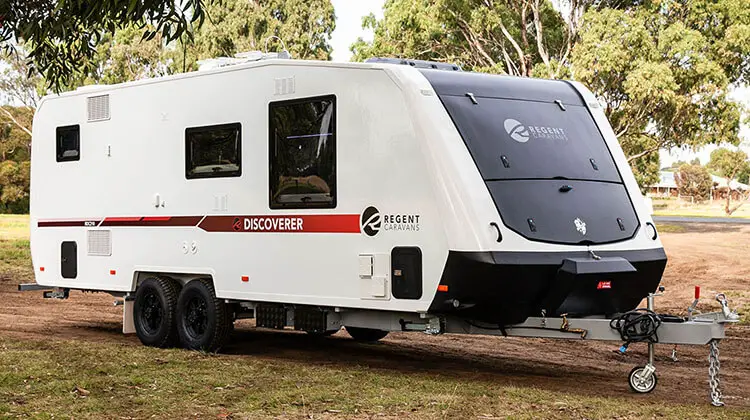RVs have different weight capacities. it’s depending on the model, an RV can hold anywhere from 2,000 to 10,000 pounds. That’s a lot of cargo! If you’re not sure how much your RV can handle, it’s important to do some research before loading it up.
In this guide, I will discuss the different weight capacities for RVs and how to safely carry a load. We’ll also take a look at some common areas that weigh down RVs and offer tips for distributing the weight evenly. So whether you’re new to RVing or just looking to pack in a bit more gear, this guide has got you covered!
RV weight capacity depends on what factors?

the different weights capacities for RVs according to type, size, and model.
Type of RV:
The weight capacity of an RV also depends on the type of RV you have. Class A RVs can hold up to 10,000 pounds, Class B RVs can hold up to 5,000 pounds, and Class C RVs can hold up to 8,000 pounds.
| RV Type | Capacity |
| Class A | up to 10,000 pounds |
| Class B | up to 5,000 pounds |
| Class C | up to 8,000 pounds |
Size of RV:
Length – The size of your RV also matters. RVs range in length from 18 feet (5.5 m) to 30 feet (9 m), and in width from 8.5 feet (2.6 m) to 11 feet (3.4 m). The height of your RV will also affect its weight capacity. RVs typically range in height from 11 feet (3.4 m) to 13 feet (4 m).
Model of RV:
Airstream, Winnebago, Thor, Coachmen, Forest River, Keystone
When loading your RV, it’s important to distribute the weight evenly. This will help prevent your RV from tipping over. You should also avoid loading too much weight in one area, as this could cause damage to your RV. When in doubt, it’s always best to err on the side of caution and consult your RV’s owner’s manual for specific weight limits.
How much weight can an RV floor hold?
RV floors are designed to hold a certain amount of weight, but the specific number will vary depending on the RV model and year. The weight capacity of an RV floor is usually printed on a sticker somewhere inside the RV. If you can’t find the sticker, you can usually find the weight capacity in the RV’s owner’s manual.
There are a few different things that affect the weight capacity of an RV floor, including the type of flooring, the thickness of the flooring, and the type of supports that are used. For example, a thin sheet of plywood will have a lower weight capacity than a thick piece of plywood. The same is true for different types of support. Metal supports will usually have a higher weight capacity than wooden supports.
When you’re trying to figure out how much weight an RV floor can hold, it’s important to keep in mind that the weight capacity is usually given for “live” weight. This means that the weight of the people and pets inside the RV is included in the weight capacity. If you’re planning on carrying a lot of gear or supplies in your RV, you’ll need to take that into account as well.
In general, most RV floors can hold between 1,000 and 3,000 pounds. However, there are some RVs that can hold more weight than that. If you’re not sure how much weight your RV can hold, it’s always a good idea to err on the side of caution and assume that it can hold less weight than the manufacturer claims.
If you’re ever in doubt, it’s always best to consult with a professional. A qualified RV technician will be able to tell you exactly how much weight your RV floor can hold and make sure that your RV is safe to use.
How much weight can an RV bumper hold?

The weight capacity of an RV bumper varies depending on the type and model of the RV. Class A RVs can typically hold up to 500 pounds, Class B RVs can hold up to 300 pounds, and Class C RVs can hold up to 400 pounds. It’s important to note that the weight capacity of an RV bumper is different from the tongue weight capacity, which is the amount of weight the RV can safely tow. To determine the tongue weight capacity of your RV, consult your owner’s manual or contact the manufacturer.
When loading up an RV bumper, it’s important to distribute the weight evenly across the entire length of the bumper. Don’t overload one section of the bumper; this could cause the RV to become unbalanced and possibly tip over. It’s also important to secure any items that are being transported on the bumper, using straps or bungee cords. This will help prevent items from shifting during transport and potentially causing damage to the RV or the items themselves.
When it comes to RV weight capacity, the bumper is just one aspect to consider. The total weight capacity of an RV includes the weight of the RV itself, any passengers or cargo that will be inside the RV, and any additional items that will be towed behind the RV (such as a trailer or boat). Be sure to take all of these factors into account when loading up your RV, to ensure that it stays within its weight limit. Overloading an RV can lead to serious accidents, so it’s always better to err on the side of caution.
If you’re ever in doubt about the weight capacity of your RV, be sure to consult with a professional before heading out on the road. A qualified RV technician can help you determine the safe weight limit for your specific RV, and can also offer tips on how to safely load and transport cargo on your RV.
How much weight can an RV shower hold?
RV showers are not built to handle a lot of weight, so it is important to be careful when using one. The average RV shower can hold between 200 and 400 pounds. Some showers are made with reinforced walls and floors that can hold more weight, but this is not always the case. It is important to check the weight capacity of your RV shower before using it.
How much weight can an RV ladder hold?

Ladders on RVs are not built to support a lot of weight. The average RV ladder can hold between 200 and 300 pounds. Some ladders are made with reinforced rungs that can hold more weight, but this is not always the case. It is important to check the weight capacity of your RV ladder before using it.
How much weight can an RV axle hold?
The average RV axle can hold between 4,000 and 6,000 pounds. Some axles are made with reinforced materials that can hold more weight, but this is not always the case. It is important to check the weight capacity of your RV axle before driving.
Conclusion:
RVs are not built to handle a lot of weight. It is important to be careful when using one and to check the weight capacity of the various parts before using them. Doing so will help to ensure that you do not damage your RV and that you enjoy your trip.

Hi I’m Joiel Borid Creators of RV Outsider. Wild Life’s first camping was started when I’m 8 years old, at the Home Front Yard. Moto of RV Outsider shares my experience, expertise, and knowledge that I learned, and apprises about my next journey. So stay tuned with RV Outsider.
